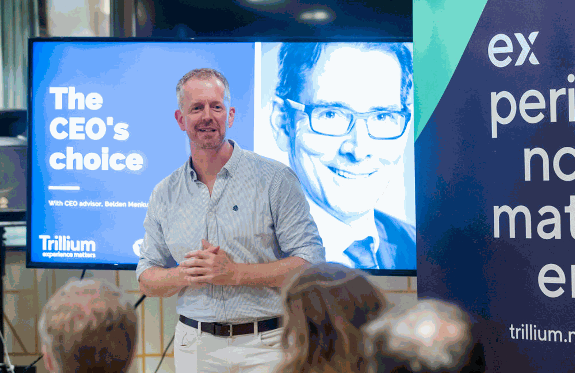Today's job market is highly competitive and candidates are generally more skilled at interviews.
At the same time, employers are increasingly recognising the importance of ensuring there is alignment between an organisation’s values and the people it hires – because getting it wrong can mean a waste of time, money and potential damage to the organisation and its existing team. As a result, many organisations are adopting values-based interviews as part of the hiring process to ensure that candidates not only have the right skills but also share the organisation's core principles.
From a candidate’s perspective, succeeding in these interviews requires more than simply rehearsing answers; it involves genuine introspection, effective communication, and a deep dive into the organisation's values. In this blog, we'll try to help you understand more about values-based interviews, and how to approach them, and although this is aimed at candidates, hopefully it will also prove useful to organisations who haven’t yet adopted values-based interviews.
Understanding Values-Based Interviews
Values-based interviews are designed to assess whether your personal values align with the values and culture of the organisation you're interviewing with. Historically there have always been questions which aim to shed a light on a candidate’s approach to work, but a growing trend amongst employers is to have a separate values-based interview as part of the main interview process, either at first or second stage, to ascertain whether or not you'll be a good fit, share their mission, and contribute positively to the workplace culture.
Here's how to tackle, and hopefully succeed in such interviews:
1. Research the organisation's values
Ok, it’s an obvious one but start by thoroughly researching your potential employer's mission, vision, and core values. These should be prominent on the organisation's website, but you might find good insight in reading its annual reports. Understanding the organisation's values is the foundation of success in a values-based interview.
While practicing your responses is important, it's equally vital to be yourself during the interview. Authenticity shines through and is a key factor in values-based interviews.
2. Reflect on your own values
Take some time to reflect on your personal values, beliefs, and what is important to you in a workplace. Consider the values that have guided your career choices and achievements. This self-awareness is crucial for identifying whether you genuinely align with the organisation's values.
3. Offer authentic examples
During the interview, you’ll need to provide examples from your experience that demonstrate your alignment with the organisation's values. Use the STAR (Scenario or Situation, Task, Action, Result) method to structure your responses. Authenticity is key, so resist the urge to exaggerate or fabricate stories!
4. Spell out your alignment with the values
Throughout the interview, express your alignment with the organisation's values clearly and confidently. It’s worth remembering to articulate how your values overlap with the organisation's and providing evidence to support your claims.
5. Ask thoughtful questions
Nothing says “genuine interest” in both a role and the organisation's values and culture by asking thoughtful questions. If they haven’t already mentioned it, ask how the organisation lives its values, how staff engage with each other and, of course, how this might all have been affected by covid and the resulting hybrid patterns of working (if relevant).
6. Show flexibility and adaptability
While alignment with the organisation's values is crucial, employers also look for candidates who can adapt and contribute positively to their culture. Highlight your ability to embrace change and work collaboratively with a diverse team, because organisations and people evolve over time and adaptability is arguably one of the most prized attributes in a potential candidate.
7. Prepare for values scenario questions
Values-based interviews often include scenario questions, where you're asked how you would handle a situation based on the organisation's values. Be prepared not just to respond by showing how you would apply those values in practice, but ideally offer an example of how you’ve done exactly that in a former or current role.
8. After the interview
After the interview, it doesn’t hurt to send an email expressing your continued interest in the organisation and reiterating your alignment with its values. It’s also a perfect opportunity to highlight something you forgot to mention at interview, in a roundabout way, without seeming to be pleading your case. Also, if you’re not successful, ask for feedback on your interview performance since it demonstrates your willingness to learn from a situation.
In conclusion, remember that values-based interviews are a two-way street, allowing both you and the employer to determine if you're a good fit for one another. By thoroughly researching the organisation's values, reflecting on your own principles, and effectively communicating your alignment, you can increase your chances of success in these interviews. Remember that authenticity and a genuine connection with the organisation's values are key to thriving in this type of interview and the perfect opportunity to find a workplace where your values and contributions truly align.
